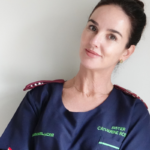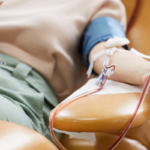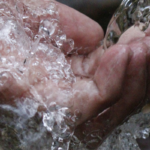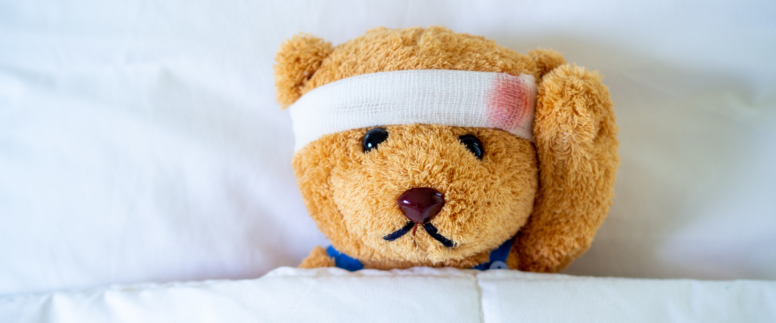The World Head Injury Awareness Day falls on March 20th every year and it looks at the number of people who suffer from a mild bump on their head to severe brain injury. The purpose of this day is to remind us of how we could reduce accidents and brain injuries if we are mindful.
Head injuries in children can be a serious concern and require prompt medical attention. Young children are more susceptible to concussion than adults are, not only because they are more likely to be active and involved in sports, but also because their brains are not yet fully developed and thus more vulnerable to injury.
A head injury is a traumatic insult to the head that may result in injury to either, the soft tissue, the bony structures or the brain itself. These injuries can occur from road accidents, falls, assaults or can be sports-related.
The aim of this day is to remind us how and where possible we could play our role in reducing accidents and brain injuries.
World Head Injury Awareness Day advocates the correct usage of helmets and seat belts, which can significantly prevent or lessen trauma to the head in accidents.
If your head suffers a fairly mild injury, in sport, a vehicle accident, or from a simple slip and fall, it can cause symptoms you don’t expect. If it has not been addressed, it may have long-term consequences.
Head injuries can inflict major damage to the central nervous system and our brain. Even minor head trauma can lead to serious complications should the correct care and treatment not be received in time. Injury to the head can result to anything from concussion, memory loss to severe paralysis and even death. Many people are partially or fully paralysed, simply due to them not wearing the appropriate head gear at the time of the accident. Interestingly, serious brain damage can occur even if the skull remains intact.
Symptoms to look out for:
- Physical symptoms like headache, nausea or vomiting, drowsiness or fatigue, problems with your speech, dizziness or changes in sleep patterns.
- Cognitive symptoms like irritability, mood swings, a feeling of tiring easily, depression, a feeling of being confused or dazed, or an inability to concentrate.
- Sensory symptoms like blurred vision, ringing in your ears, changes in taste or sensitivity to sunlight and other bright lights, or sounds, you may need medical attention including vestibular rehabilitation therapy.
When to be worried:
- If the person can’t be roused within the first 6 hours of the injury occurring.
- If there are behavioural changes i.e aggression.
- If there is a loss or decreased level of consciousness.
- If there is a severe headache with projectile (fountain) vomiting.
- If there is speech difficulty.
What to do:
- Anyone with an injury to the head needs to be monitored for at least 24 hours.
- Call for help or transport the person to the hospital if their symptoms worsen.

The Importance of Learning CPR and First Aid for Teenagers
As parents, learning CPR and first aid is not just about personal readiness; it’s a powerful tool in ensuring the safety and well-being of our adolescent children. Here’s why it’s crucial for parents to acquire these life-saving skills for their teenage children. Sister Catherine writes about the importance of learning

From witnessing a lot of trauma in my work to empowering parents
I want to take you on a journey that led me to become a full-time CPR and first aid instructor and proud business owner of Survival CPR. This story is about passion, empowerment, and making a real difference in the lives of people like you. A Trauma-Fueled Calling: Having spent

The Role of the Microbiome in Children
As we bask in the warmth of spring and witness the beauty of nature’s renewal, let’s delve into a topic just as fascinating and vital for our little ones’ well-being – the microbiome. This month, we explore the incredible world of microorganisms that inhabit our children’s bodies and the profound

World Breastfeeding Week
World Breastfeeding Week: Celebrating the Benefits for South African Families As we embrace the month of August, we joyfully celebrate the significance of family and the well-being of our precious little ones. In this blog post, we highlight the importance of World Breastfeeding Week, a cherished event that takes place

Winter Safety Guide
Winter’s arrival brings with it a desire to snuggle up and stay warm in the comfort of our homes. Fireplaces, gas and electrical blankets, heaters, and hot water bottles become our trusted companions during these chilly months. However, it’s crucial to prioritize safety to prevent potential accidents or hazards. In

Sudden Infant Death Syndrome (SIDS)
Sudden Infant Death Syndrome, or SIDS, is a heartbreaking tragedy that affects thousands of families each year. As a parent, the thought of losing your child to SIDS can be overwhelming and scary. But there are steps you can take to reduce the risk of SIDS and be prepared for

World Blood Donor Day 2023: “Give blood and keep the World beating”
Did you know that blood donation is one of the most selfless and impactful things you can do for your community? It’s true! And in South Africa, the need for blood donors is always high. That’s why today, I want to share with you some of the many reasons why

First Aid for Burns – a must read for every parent
Sister Catherine Rodwell sheds light on the right way to handle burns, be it in children or adults. It’s crucial to be aware of the proper procedure to not worsen the burn’s impact. From 6-12 May, National Burns Awareness Week is being observed. In continuation of our conversation with “Mommy

A mother recounts her traumatic experience
We are very grateful for this mommy who wanted to share her traumatic story with us, so that other parents can learn how quickly accidents can happen. Please note that photo’s can be triggering. We are very grateful for this mommy who wanted to share her traumatic story with us,


